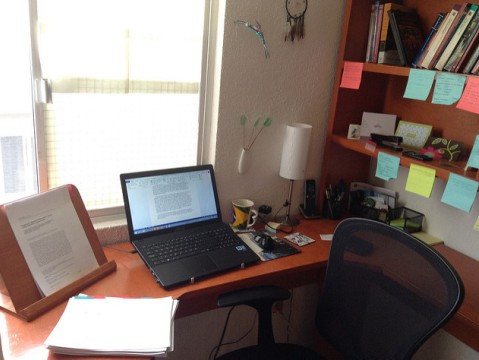News of an Abbottabad killing seems to have drowned out news of a London wedding. Pardon us for still reflecting on the royal wedding. At Jodi365.com, we are, after all, in the business of bringing people together.
What’s on our mind is the brouhaha over Kate Middleton’s choosing to leave out from her wedding vows a promise to “obey” her husband. It struck us as another case of media sensationalism, judging by the 449,000 search results from this Google query: kate middleton wedding vows obey
We Googled some more and learned that the new Duchess of Cambridge didn’t really “strike ‘obey’ from her wedding vows,” as some of the headlines would have us believe. The lady apparently had a choice between two versions of marriage vows in the Church of England’s prayer book, and she chose the modern version. She still vowed to love, honor, and keep her husband, in sickness and health. Who has a problem with that?
We ask those who made a lot of noise about the omission of the word ‘obey’: When was the last time that you vowed to obey another person, whether it was a spouse, parent, teacher, employer, head of state, or some authority figure?
A wedding is a special occasion in a couple’s life, and it should be up to the individuals concerned to decide how they solemnize the marriage.
For those of you who didn’t receive a wedding invitation or missed the moment, here is a video and transcript of the royal exchange of vows.
Speaking of wedding recitations, we particularly like this one, which is said to be a favorite at non-denominational weddings in the U.S.:
Now you will feel no rain,
For each of you will be shelter to the other.
Now you will feel no cold,
For each of you will be warmth to the other.
Now there is no more loneliness,
For each of you will be companion to the other.
Now you are two bodies,
But there is one life before you.
Go now to your dwelling place,
To enter into the days of your togetherness.
And may your days be good and long upon the earth.
It is believed to be an Apache Indian wedding prayer, but according to the Economist, it was actually scripted for a Hollywood movie. We don’t have a problem with that, just as we don’t have a problem with greeting cards bearing printed messages. After all, it still takes some effort to pick a card that conveys the right message and sentiment for an occasion.
As for those who prefer to use blank cards and write their own greetings, or write their own wedding vows: We salute you!
We also applaud young Indian couples who consciously pick a patient priest for their wedding ceremony – a priest who not only recites appropriate verses from a religious text, but also takes the time to explain the meaning of the verses to the marrying couple. If this is a trend, we see it as a welcome indicator of people wanting to see more meaning in wedding customs and taking their wedding vows seriously.
On that note, we would like to know: Are there lines in wedding vows that have particularly resonated with you? Any wedding traditions that you especially cherish?
Image courtesy of srizki via Creative Commons.
Editor’s note:
If you are unmarried, here is something you should know about marriages: On Being Married: Point and Counterpoint.















































